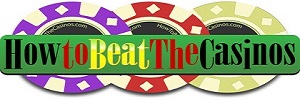Everyday Roulette Tactics: What Works (And What’s a Con)
It’s your mate Dave the Gambler from HowToBeatTheCasinos.com, and today we’re talking about roulette—the flashy, hypnotic wheel that’s taken more wallets than a Saturday night bar tab. Whether you play online or in-person, you’ve probably seen people swear by some kind of “system.” Martingale, dozens strategy, neighbours, colours, patterns—it seems like everyone has a trick. But here’s the truth: roulette’s a cruel mistress, and most of what you hear is wishful thinking dressed up as strategy.
I recently watched a video claiming you had a “57% chance per bet to win $900” using some combination of column and dozen bets. And look, I get the appeal. The wheel spins, the ball bounces, and with the right coverage, it feels like you’re increasing your odds. But don’t mistake coverage for control. Let’s break it down.
Understanding the Basics: The House Edge
First things first—roulette is a negative expectation game. On a standard European wheel (single zero), the house edge is about 2.7%. On American wheels (with 0 and 00), it jumps to 5.26%. That edge is baked into the game, no matter how clever your bets are.
Now, that doesn’t mean you can’t win. Of course you can. But it means over time, the math catches up. The longer you play, the more you lose. So when someone says you’ve got a 57% win chance on a bet, your first question should be: “What happens the other 43% of the time?” And the answer is often: you lose a lot.
The Illusion of Coverage
The strategy in the video was a classic one—betting on two of the three dozens or columns. For example, you might bet on the 1st and 2nd dozen (1–24), which gives you 24 out of 37 numbers on a European wheel. That’s 64.8% coverage. Sounds great, right?
But if the ball lands on the dozen you didn’t cover—or worse, on zero—you lose both bets. And when you do win, you’re only making back one unit of profit for two units at risk. That’s not a good risk/reward balance. It’s just a psychological cushion.
This kind of system wins often, but pays little and loses big. You might win three times in a row and feel like a genius, then lose once and give it all back. And that’s exactly how the house keeps you playing—lots of little wins to keep your hopes up, followed by one punch in the gut.
So What Does Work in Roulette?
Let’s be real—there’s no “winning system” that beats the wheel. But there are smart ways to approach the game that give you more control over your experience and bankroll.
1. Stick to Even-Money Bets
Red/black, odd/even, high/low—they pay 1:1 and cover 18 numbers. These bets give you nearly a 50% win chance (47.3% on European wheels). They don’t offer big payouts, but they keep you in the game longer. If your goal is slow play and the occasional win, this is the safest lane.
2. Avoid the Sucker Bets
Stay away from betting on individual numbers unless you’re just in it for fun. The 35:1 payout looks juicy, but the odds of hitting are 1 in 37. Same goes for betting on the zero or using strategies that rely on hitting specific numbers—unless you enjoy handing your chips to the dealer.
3. Manage Your Bankroll Like a Pro
Most people lose at roulette not because of the wheel, but because they have no plan. Set a session limit. Break your bankroll into units. Decide when you’ll walk away. And stick to it. The discipline will save you when luck doesn’t.
4. Use Bonuses or Comps Wisely
If you’re playing online, use that deposit bonus—just make sure the wagering requirements are reasonable. If you’re in a casino, sign up for a player card. Free play and comps are actual ways to get value back, unlike systems that just mask losing.
5. Know When to Walk Away
The hardest part of gambling is stopping when you’re ahead. But it’s the only real edge you have. If you hit a win that feels significant, consider pocketing part of it. Don’t stay at the wheel because you’re “on a roll.” The house edge doesn’t care about your momentum.
My Personal Take on Roulette “Systems”
I’ve tried most of them. I’ve dabbled in Martingale, played with columns, even tested out neighbour bets. And while they all make the game feel strategic, none of them beat the house. At best, they create structure. At worst, they lure you into over-betting your bankroll with the false hope of “guaranteed recovery.”
Here’s the truth: systems don’t change the odds. Only the payout structure does. Every spin is independent. The wheel has no memory. If it landed on red ten times in a row, the odds of hitting red again are still the same as they always were. Chasing patterns is fun—but don’t confuse it for profit strategy.
Can You Actually Walk Away a Winner?
Absolutely. I’ve had great nights at the roulette table. I’ve walked away up a few hundred. I’ve even hit lucky spins for bigger wins. But those moments were the exception, not the rule. The key is treating the game like entertainment, not a business plan. The longer you stay, the more the wheel reclaims.
If you want to gamble smarter, don’t try to hack roulette. Accept it for what it is—a high-risk, low-strategy game with flashy appeal. Play small, have fun, and walk away while you still can.
Final Thoughts
Roulette is one of the most thrilling games in the casino. The lights, the clatter of the ball, the quick pace—it’s addictive. And while there’s no beating the house long term, there’s a big difference between playing smart and playing blind.
If you’re using a system, use it for fun—not for false hope. And always remember: the most powerful tactic in gambling is knowing when to leave.
Until next spin,
—Dave the Gambler

